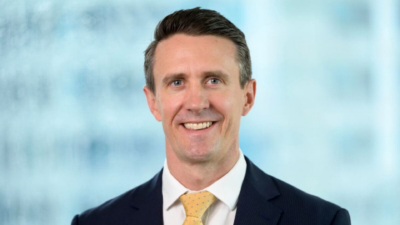Cost of regulating super has smaller funds doing the heavy lifting
Smaller APRA-regulated super funds railing against the funding model to pay for the industry’s regulation have found a valuable ally in the peak accountancy body, CPA Australia.
This accounting organisation has thrown its weight behind the ongoing campaign by these funds – less than $20 billion in funds under management – for a more “equitable” solution to the industry levy.
Responding to Treasury’s annual consultation on the proposed financial institutions’ supervisory levies for 2025-26, CPA Australia superannuation lead Richard Webb says members of small and medium-sized funds appear to have become “collateral damage” in an imperfect model.
“The levies are designed to recover costs incurred by the agencies responsible for regulating the super industry and are therefore a key component to the integrity of the system. However, the current model for recovering these costs is unfair and change is long overdue,” he says.
CPA Australia wants Treasury to reconsider the formula that allows superannuation funds to recover regulatory costs from members because those belonging to smaller funds continue to pay more than their fair share.
“Despite the total levies for next year falling, members of smaller funds continue to make significantly greater contributions than those of large funds. What’s more, the reduction passed on to members of small and medium-sized funds is less than the reduction for members of larger funds. This is simply rubbing salt into the wounds.”
The smaller superannuation funds acknowledge that the proposed levy for 2025-26 is an improvement on previous years.
In a recent letter to Treasury, First Super – it has funds under management of $5 billion – said Treasury was to be commended for reversing this decrease and taking active steps to have larger funds pay a greater proportion of the MRL (maximum restricted levy).
“However, further adjustments should be taken to the MRL and fee percentage so that they can reach levels seen only a few short years ago … and the unreasonable and unjustifiable burden on our funds and members is removed.”
On 2021-22, the MRL was reached when funds under management was $20.5 billion, in 2022-23 it was $17.5 billion and in 2023-24 it was $9.5 billion.
First Super chief executive officer Bill Watson (pictured) says: “This race to the bottom was to continue in 2024-25 with the proposed levies for that year would have seen the funds under management reach a mere $7 billion.
“However, in part to due to our urging, this was arrested and the MRL has instead reached $11.5 billion. This year’s proposal would see that increase again to $13 billion. (Even so), these adjustments are only changes to a fundamentally iniquitous system.”
In its submission to Treasury, BUSSQ – the Queensland building industry fund has $7 billion in funds under management – made a similar point.
Although the year being reviewed was 2023-24, the principle remains the same with the increases in the restricted and unrestricted levies meaning that for superannuation funds with $10 billion or less in funds under management, the levies paid increased by 47 per cent to 53 per cent while funds with $20 billion or more, the levies paid increased by only 2.5 to four per cent.
“This translates to larger funds that are already at the cap receiving very little increase while those with lower funds under management are disproportionately disadvantaged,” the letter said.
CPA Australia’s Webb says members of smaller super funds are already bearing a higher burden of administration costs and it’s unfair to further increase this with a disproportionate share of the levies required to fund the regulation of the system.
“We acknowledge that current government policies aim to encourage mergers of super funds to reduce member fees. However, we believe that there is more work to be done in the meantime to ensure that members of smaller funds do not continue to pay more than their fair share,” he says.
Webb is also concerned that the funding allocation for the Gateway Network Governance Body (GNGB) – it will govern the Superannuation Transmission Network (STN) – will be insufficient to prepare the organisation for the much-needed investment that will be required to manage with new Payday Super requirements.
“The levies attributable to the GNGB is forecast to increase by just $100,000,” he says. “However, in addition to an increased focus on cyber threats and data security, the GNGB also oversees the work undertaken by the STN in preparation for Payday Super. This crucial work does not appear to have been factored into this. We would have expected to see around a five-fold increase in this funding.”











